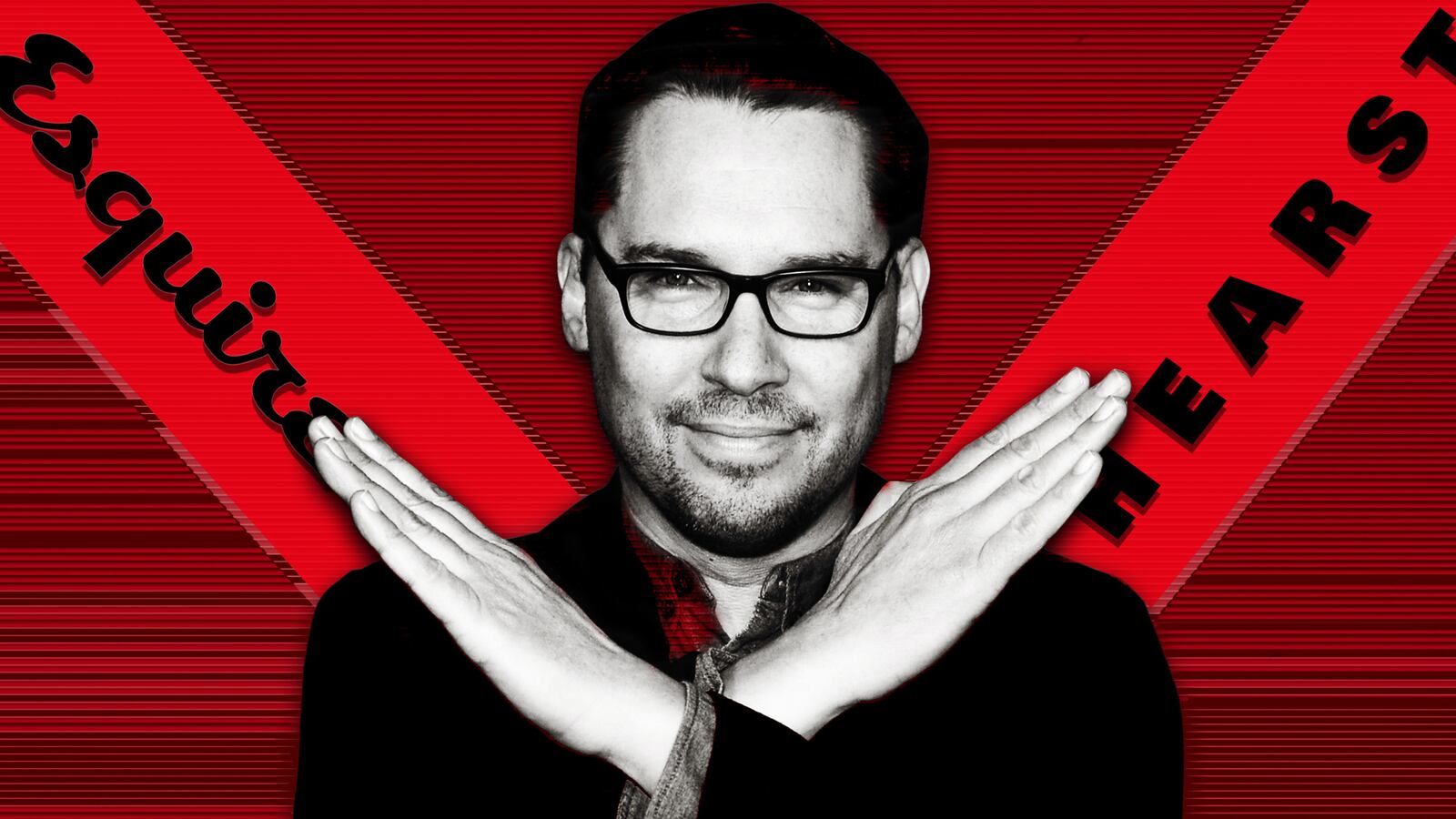The journalists behind an explosive Atlantic story detailing sexual-misconduct allegations against Hollywood director Bryan Singer accuse executives of killing their piece when it was about to run in a different publication.
Alex French and Maximillian Potter published their story in The Atlantic on Wednesday, following a 12-month investigation that began at Esquire. Singer — who directed The Usual Suspects, several X-Men films, and produced Oscar-nominated Bohemian Rhapsody — is accused of using his power to prey on underage boys in Hollywood. Four men told French and Potter they were seduced and had sex with Singer when they were minors, including one who said he was just 13. A fifth man claimed Singer raped him. (The director categorically denied sex with underage males and contested specific allegations in The Atlantic.)
They initially took the story to Esquire, the men’s magazine owned by Hearst.
“After months of reporting,” French and Potter said in a statement, “the story went through Esquire’s editorial process, which included fact-checking and vetting by a Hearst attorney and the story was approved for publication. The story was killed by Hearst executives. We do not know why.”
Singer used Esquire’s decision against the journalists, claiming the magazine “chose not to publish this piece of vendetta journalism” due to the “lack of credible sources.” Singer also called the story—with allegations from two men by name and dozens of sources allegations—a “homophobic smear piece.”
Atlantic editor-in-chief Jeffrey Goldberg told The Daily Beast that the story was fundamentally sound when French and Potter approached him at the beginning of November.
“We subjected it to two months of our own fact-checking and legal process. It passed a threshold for me,” Goldberg said. “My clear understand is that the editors of Esquire wanted to publish the piece but that it was spiked by executives at Hearst.”
Two sources familiar with Esquire’s plans said the piece was scheduled to run in the magazine’s December issue when orders came from Hearst executives not to publish the story. Two sources said Hearst’s chief content officer, Kate Lewis, had reviewed the story, and another source briefed on the situation said the ultimate decision to kill it was made by Troy Young, president of Hearst magazines.
Hearst did not reply to multiple requests for comment.
Sources with knowledge of the story that arrived at The Atlantic said it had much of the same information that was in the Esquire final draft, but that the writers added details that strengthened several accusations before it was published on Wednesday.
The Esquire story is the latest instance of a news outlet being accused of not publishing stories about powerful men accused of sexual misconduct. NBC News was accused by journalist Ronan Farrow and former producer Rich McHugh of spiking their investigation of Harvey Weinstein in 2017, which was published in the New Yorker where it earned a Pulitzer Prize. Last year, then John Amato, then-CEO of Billboard and The Hollywood Reporter, also shelved several major stories detailing allegations of sexual harassment about his friend, music executive Charlie Walk.








